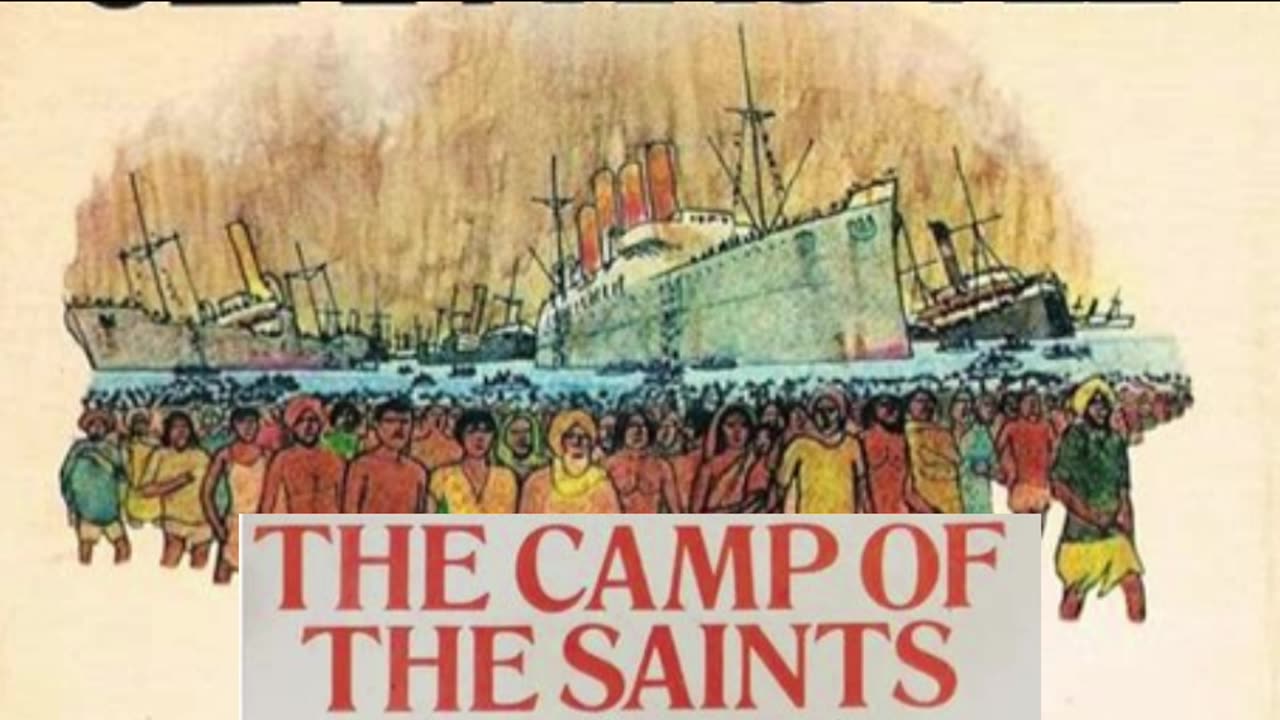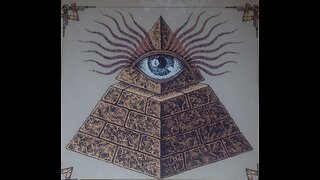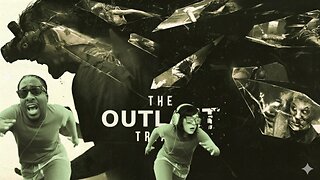Premium Only Content

The Camp of the Saints by: Jean Raspail
Le Camp des Saints is a dystopian French novel by Jean Raspail, first published in 1973. It explores the collapse of Western civilization through the lens of mass migration. Raspail constructs a narrative in which Europe faces an overwhelming influx of impoverished refugees from India, depicted as a "third-world" tidal wave arriving on the French coast. The novel focuses on how Western society reacts or fails to react to this humanitarian crisis, emphasizing cultural, political, and moral decay.
The story centers on a massive fleet of decrepit ships carrying starving people from India to Southern France. French authorities, intellectuals, and media elites are paralyzed by guilt, idealism, and a naive sense of humanitarian duty. Raspail portrays them as increasingly passive and morally compromised, unable to resist or protect their own society. The novel follows multiple perspectives, including politicians, journalists, ordinary citizens, and the refugees themselves. It shows the tension between survival instincts, ethical dilemmas, and societal collapse.
As the fleet approaches, chaos unfolds. Law and order break down, and Raspail uses this crisis to examine what he perceives as the spiritual, cultural, and demographic decline of Europe. The narrative is unapologetically provocative and frames the arrival of the refugees as an existential threat to Western identity and civilization.
The book explores several themes. Civilizational decline is shown through a West that is weak, decadent, and incapable of defending itself. Mass migration and cultural conflict highlight the consequences of uncontrolled migration and social tension. Moral hypocrisy and guilt are explored through characters who are paralyzed by idealism and unable to act decisively. Survival versus ideology is a central concern, as the novel critiques policies that compromise self-preservation.
Raspail's prose is vivid, often allegorical, and deliberately stark. The narrative is polemical and designed to provoke reflection and controversy. Le Camp des Saints is highly controversial, praised by some for its critique of Western complacency and condemned by others for its racialized depiction of migration and perceived alarmism. The book has influenced political discourse in Europe and remains a polarizing work, frequently cited in debates over immigration and cultural identity.
About the Author:
Jean Raspail (1925–2020) was a French author, explorer, and cultural critic, best known for his controversial 1973 novel Le Camp des Saints (The Camp of the Saints). He was born on July 5, 1925, in Chemillé-sur-Dême, a town in the Loire Valley. Raspail came from a bourgeois Catholic family with strong ties to Parisian commercial and civic life. He was the youngest of four children and spent his early years in the affluent 16th arrondissement of Paris, attending prestigious Catholic schools.
Raspail's early life was marked by a deep engagement with Catholic traditions and a sense of aristocratic nostalgia. His education at elite institutions such as Saint-Jean de Passy and the École des Roches in Verneuil-sur-Avre laid the foundation for his later works, which often explored themes of cultural identity, tradition, and the decline of Western civilization.
In the 1950s, Raspail undertook extensive travels. He led expeditions such as a Tierra del Fuego–Alaska car trek from 1950 to 1952 and a French research mission to the land of the Incas in 1954. These experiences enriched his understanding of the world and influenced his literary works, which often blended adventure with philosophical inquiry.
Raspail's literary career spanned several decades. He authored numerous novels, essays, and travel books. Notably, his 1981 novel Moi, Antoine de Tounens, roi de Patagonie (I, Antoine of Tounens, King of Patagonia) won the Grand Prix du Roman from the Académie française. Despite his prolific output, he remained somewhat marginal in the French literary establishment due to the provocative nature of his works.
Raspail's traditional Catholicism and monarchist leanings were central to his worldview. He often critiqued modern liberalism and communism, advocating instead for a return to what he perceived as a more authentic and noble past. This perspective was evident in his 1990 novel Sire, which imagines the coronation of a French king in the year 1999.
Throughout his life, Raspail remained a steadfast critic of contemporary political and cultural trends, particularly regarding immigration and national identity. His works continue to provoke debate and reflection on the challenges facing Western societies in the modern era.
-
 5:59:13
5:59:13
Deus Meum Que Jus
5 days agoWilliam Cooper - Scarlet & The Beast, Identity of Scarlet & The Beast Series - 9.94 - 10.94
557 -
 13:56
13:56
Clintonjaws
9 hours ago $3.38 earnedEntire Room Speechless As Poilievre Snaps & Puts TV Hosts In Their Place
5.68K11 -
 DVR
DVR
EricJohnPizzaArtist
1 day agoAwesome Sauce PIZZA ART LIVE Ep. #67: HALLOWEEN SPECIAL tribute to “Need to Breathe”
37.3K8 -
 2:26:26
2:26:26
Nerdrotic
6 hours ago $31.97 earned3I/Atlas : A Cosmic Horror or a New Interstellar Understanding? | Forbidden Frontier #122
178K14 -
 54:56
54:56
Sarah Westall
3 hours agoHidden Biblical Writings: Evidence Based Investigation, Worlds First Collection w/ Matthew McWhorter
10.4K9 -
 LIVE
LIVE
megimu32
3 hours agoOTS: Great Scott! How Back to the Future Changed Movies Forever
50 watching -
 LIVE
LIVE
CassaiyanGaming
2 hours ago🟢LIVE - The OUTLAST Trials with JahBless & CatDog
91 watching -
 10:54
10:54
Nate The Lawyer
2 days ago $8.68 earnedNEW Charges & Lawsuit For Fake Doctor Illegal Who Ran Schools For Decades
25.8K26 -
 LIVE
LIVE
Joker Effect
2 hours agoSTREAMER NEWS: Adin Ross, LupLupka, SideScrollers, N3on, TrainwrecksTv, Cuffem, WestCol, BottedWTF.
412 watching -
 DVR
DVR
IsaiahLCarter
1 day ago $3.35 earnedWill New York City Choose Communism? || APOSTATE RADIO 032 (with John D. Macari)
19.3K5